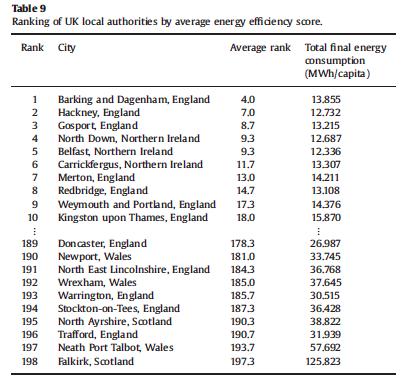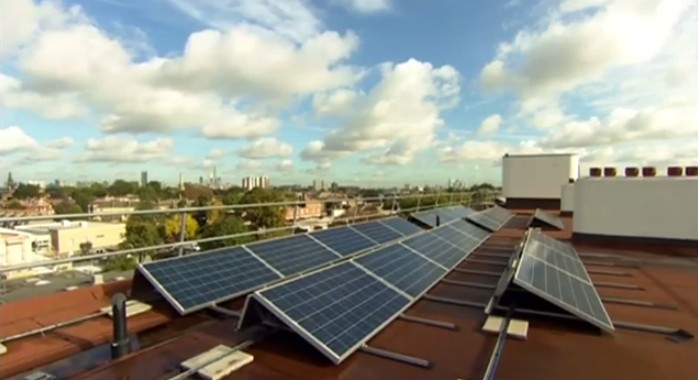Site search:
-
What’s new?
Energy for London Tags
Brent Buildings Camden Carbon Emissions CHP Cities Climate Adaptation Community Heating Community Initiatives Croydon Data DECC Decentralised Energy Distribution ECO Energy Costs Energy Efficiency Enfield FIT Fuel Poverty Funding Green Deal Hackney Haringey Housing Islington Lambeth Library Local Authorities Mayor Newham Ofgem Olympics Photovoltaics Planning RE:FIT RE:NEW Renewable Energy Retrofit Southwark Tower Hamlets Transport Waltham Forest Waste WestminsterEnergy Archives:
- February 2021 (1)
- January 2021 (15)
- December 2020 (15)
- November 2020 (9)
- October 2020 (3)
- August 2020 (5)
- July 2020 (3)
- June 2020 (4)
- April 2020 (10)
- March 2020 (5)
- February 2020 (2)
- January 2020 (3)
- October 2019 (1)
- September 2019 (4)
- August 2019 (2)
- July 2019 (1)
- August 2018 (1)
- November 2016 (8)
- October 2016 (8)
- September 2016 (2)
- August 2016 (8)
- July 2016 (14)
- April 2016 (12)
- March 2016 (16)
- February 2016 (8)
- January 2016 (4)
- December 2015 (1)
- November 2015 (1)
- October 2015 (16)
- September 2015 (3)
- June 2015 (1)
- May 2015 (1)
- April 2015 (1)
- March 2015 (1)
- February 2015 (1)
- January 2015 (1)
- December 2014 (18)
- November 2014 (4)
- August 2014 (8)
- July 2014 (7)
- June 2014 (25)
- May 2014 (8)
- April 2014 (4)
- March 2014 (12)
- February 2014 (7)
- January 2014 (13)
- December 2013 (11)
- November 2013 (15)
- October 2013 (15)
- September 2013 (18)
- August 2013 (5)
- July 2013 (20)
- June 2013 (33)
- May 2013 (8)
- April 2013 (16)
- March 2013 (25)
- February 2013 (14)
- January 2013 (20)
- December 2012 (23)
- November 2012 (23)
- October 2012 (25)
- September 2012 (14)
- July 2012 (12)
- June 2012 (43)
- May 2012 (20)
- April 2012 (8)
- March 2012 (40)
- February 2012 (39)
- January 2012 (40)
- December 2011 (22)
- November 2011 (40)
- October 2011 (33)
- September 2011 (48)
- August 2011 (40)
- July 2011 (58)
- June 2011 (41)
- May 2011 (80)
- April 2011 (38)
- March 2011 (33)
- February 2011 (25)
- January 2011 (24)
- December 2010 (3)
- November 2010 (7)
- October 2010 (6)
- September 2010 (7)
- August 2010 (1)
- July 2010 (2)
- June 2010 (4)
- May 2010 (1)
- March 2010 (3)
- February 2010 (3)
- December 2009 (5)
- November 2009 (2)
- October 2009 (3)
- July 2009 (3)
- June 2009 (1)
- April 2009 (1)
- March 2009 (1)
- February 2009 (1)
- January 2009 (1)
- December 2008 (2)
- October 2008 (1)
- September 2008 (1)
- July 2008 (1)
- March 2008 (2)
- January 2008 (2)
- October 2007 (1)
- September 2007 (3)
- July 2007 (1)
- March 2007 (1)
- February 2007 (3)
- November 2006 (3)
- August 2006 (1)
- February 2006 (1)
- May 2005 (1)
- February 2004 (1)
Monthly Archives: November 2013
Energy & Climate Questions to the Mayor
November 2013: This month the Mayor has been asked questions in relation to:
the price of Londoner’s gas bills; the uptake of the Green Deal in London; details of schools going through the RE:FIT Energy Efficiency Programme; the recent GLA-commissioned study looking at London’s Zero Carbon Energy Resource; London Energy Costs; the London Energy Efficiency Fund (LEEF) Loan to Croydon; work undertaken on Energy Efficiency guidance to SMEs; buildings adopting the GLA Sustainable Design and Construction Standards; whether the Mayor had sent a copy of the GLA’s ‘Energy Planning: Monitoring the implementation of London Plan energy policies in 2012‘ research to CLG; the Mayor’s response to a recent Environment Audit Committee recommendation that local authorities should have a statutory duty to produce low-carbon plans for their area; the GLA’s response to CLG’s Allowable Solutions consultation; Mayoral concern over CLG’s Housing Standards Review consultation; organisations working alongside the Mayor’s Affordable Warmth and Health Action Plan; events proposed around the Mayor’s Affordable Warmth and Health Action Plan; London’s children and fuel poverty; evaluation of the Know Your Rights Campaign; the Mayor’s support for nuclear; the Mayor’s response to former PM John Major’s comments on households having to choose between heating or eating; an update report on the Mayor’s Climate Change Mitigation and Energy Strategy; the Mayor’s response to concerns that the ECO is to be scrapped; the Mayor’s strategy for delivering the ECO and Green Deal in London; whether the Mayor has been in contact with CLG over the Housing Standards Review consultation.
Previous months questions to the Mayor can be found here.
Posted in News
Tagged Carbon Emissions, Data, ECO, Fuel Poverty, Funding, Green Deal, Housing, Planning
Leave a comment
Urban Green Infrastructure
15 November 2013: The Parliamentary Office of Science & Technology has just produced a short briefing note on ‘Urban Green Infrastructure’ which “summarises research evidence of the effectiveness of green infrastructure, and challenges to its implementation.” It includes reference to ‘cooling the urban heat islands‘ stating:
“Urban areas often experience elevated temperatures compared with the surrounding countryside, because of extensive heat absorbing surfaces, such as concrete and tarmac, concentrated heat production and impeded air flow. For example, the centre of London is on average 5°C warmer than surrounding rural areas.”
Read the full POST note here.
DECC HECA Research
November 2013: All English local authorities were required to submit an updated Home Energy Conservation study report to DECC by 31 March 2013. An earlier post goes into these requirements in more detail and provides links to the report from those London boroughs who had posted them online on their website.
DECC have now published research summarising around 245 of these reports (see the Excel spreadsheet on the following link) as well as a document providing links to all reports published online. See both here. Only 20 London boroughs reports are however summarised on the spreadsheet. The HECA list states that some London boroughs have still not submitted reports: these appear to be Barking & Dagenham, Brent, Lambeth and Southwark.
It’s unclear if Bexley, Islington and Merton have submitted reports, as no links are listed – though the list does not say explicitly set out that these reports have not been provided: however, their actions are also not summarised on the spreadsheet.
GLA district energy research commissioned
November 2013: The GLA have commissioned research into how district heating systems can work successfully in new developments as energy efficiency requirements continue to increase. The approval document sets out that:
“With the improving standards for insulation and air tightness to retain heat within developments, it is important that communal heating systems within buildings are designed so that they do not contribute towards buildings overheating.
“It is therefore proposed to procure consultants to carry out a study into how communal heating systems, specifically in residential schemes, implemented as a result of policy can be designed to avoid overheating.”
This issue of district heating and overheating was briefly touched upon in research undertaken by AECOM for the Department of Communities in 2012.
Innovative Kingston heat pump scheme
November 2013: Local MP and Secretary of State for Energy, Ed Davey, recently opened a novel heat source pump scheme providing heating to a residential scheme in Kingston drawn from the Thames. An article in Renewable Energy Installer sets out that “Just 200 metres from the river bank, its 2.3MW community heating system draws up to 13 million litres of water each day through high efficiency heat exchangers. The low grade heat is carried to a plant room in the building via a closed loop where Mitsubishi Ecodan heat pumps delivers it as usable heat to meet all heating and hot water demands in the complex.”
A huge amount of background detail to this novel scheme can be read in trade journal Modern Building Systems here. Mitsibushi have described the scheme as “one of the most impressive in Europe if not the world. This is a pioneering installation and hugely innovative.”
Fuel Cells in London
November 2013: The Guardian highlighted in a recent story that the London HQ of Al Gore’s business is to be based in a new office development on Regent Street which has included a wide array of onsite energy measures installed including a gas-powered fuel cell.
“Climate campaigner and former US vice-president Gore said the £400m Quadrant 3 redevelopment showed a “sophisticated commitment to sustainability”. The headquarters of his sustainable investment company, Generation Investment Management, will be sited in the new buildings.
“The cell was developed by US company FuelCell Energy. It will emit 38% less carbon dioxide than using electricity from the grid and heat from gas-fired boilers, according to the crown estate, which says 350 tonnes of carbon dioxide emissions will be saved per year. Unlike fossil-fuel-burning power plants, the fuel cell produces power with virtually no nitrogen oxide (NOx), sulphur dioxide (SOx) or particulate matter (PM) pollution.
The new plant forms part of the central energy system that serves 500,000 sq ft of offices, shops, flats, restaurants and hotels in the Quadrant development.” Read the full Guardian story here.
Further detail on the installation of the fuel cell can be read here – which has been undertaken by Edinburgh based Logan Energy. The Quadrant 3 development has a number of other onsite energy measures installed (including a Combined Cooling Heat & Power plant, thermal stores and photovoltaics – see diagram below), as set out in the property brochure.
Another new London development to include fuel cell technology is that on 20 Fenchurch Street (more commonly known as the ‘Walkie Talkie’ building) which has installed a 300 kWe fuel cell, details of which can be read here and here.
Transport for London installed a fuel cell CHP in their Palestra building in Southwark back in 2010, details of which – including a video presentation – can be seen here and here.
Posted in Decentralised Energy, News
Tagged CHP, City of London, Fuel Cells, Southwark, Westminster
Leave a comment
Brixton Energy on the Beeb
November 2013: The recent BBC London coverage of the Brixton Energy solar schemes can now be viewed on Youtube here. The new piece includes interviews with Brixton Energy and Repowering London Director Agamemnon Otero and Labour Council Leader of Lambeth, Lib Peck.
Cllr Peck states in her interview that local authorites should be looking to work on similar projects in their own areas but it will be about the will of councils to say they want to make these projects happen and get rid of the challenges and obstacles.
Funding Energy Efficiency Retrofit in London
November 2013: The GLA’s RE:NEW team have recently produced a guide identifying “potential sources of funding and finance available to London Boroughs, Registered Providers of Social Housing, private landlords and individuals to pay for energy efficiency retrofit measures in their housing.”
The sources of funding covered include the ECO, London Energy Efficiency Fund (LEEF) and the Social Housing Fund. Download the guide here.
Posted in Energy Efficiency, News
Tagged Energy Efficiency, Funding, Housing, London Green Fund, RE:NEW
Leave a comment
Reducing building CO2 emissions through better design
November 2013: The GLA have commissioned research to determine the “most effective way for buildings to reduce their carbon dioxide emissions through the design and fabric, based on the Building Regulations modelling tools.” This study will support the GLA’s recent Supplementary Planning Guidance on Sustainable Design & Construction guidance (for more of which here) and London Plan targets which requires all major planning applications from 1 October 2013 will need to provide CO2 emission savings 40% beyond the 2010 building regulation requirements.
Full details of the commission here.
Posted in Energy Efficiency, News
Tagged Buildings, Carbon Emissions, Energy Efficiency, Planning
Leave a comment
Potential for biodiesel from use cooking oil and FOGs in London
November 2013: The Mayor announced today that TfL will be deploying 12o buses from the Barking depot which will run on a blend of 80 per cent regular diesel and 20 per cent biodiesel. The press release states that “Biodiesel is a renewable, clean-burning fuel made from used cooking oil from the catering industry and tallow which is a residue from the meat processing trade. It is estimated that buses running on biodiesel produce 15 per cent less ‘well to wheel’ carbon emissions than an ordinary diesel-powered bus…No mechanical change is needed to allow a bus to run on a 20% blend of biofuel. The biodiesel in this trial is being supplied by Argent Energy with the standard diesel supplied by Prax Petroleum.”
The GLA also commissioned consultants LRS to produce a report on the market opportunity for a biodiesel market in London using used cooking oil (UCOs), fats oils and grease (FOGs) from commercial and domestic sources in the capital. The report can be downloaded here and sets out to “evaluate the potential to reduce the emissions and carbon footprint of the bus fleet in London by using up to B30 biodiesel instead of petrodiesel. Additional sustainability benefits would be achieved by using biodiesel made from used cooking oil (UCO) and fats, oils and greases (FOGs) instead of virgin oils.”
The report references recent disputes in London over UCO (see Daily Telegraph story here) stating “only 3-4 years ago illegal disposal of UCO down drains was recognised to be a significant issue, recently the demand for UCO has soared and led to ‘Cooking Oil Wars’, whereby collectors pay increasingly escalating prices to commercial organisations for UCO.”
In terms of London’s potential to produce biodiesel, on the basis of national estimates, the report suggests that using the “ratio of London’s population to the national population and uplifting to reflect the greater concentration of catering establishments in London gives an estimate of 32-44 million litres of UCO waste arisings in the London area. There are nearly 24,000 food and beverage service activities in London, along with a further 835 businesses in London working in the food manufacturing sector, most of which contribute to the production of UCOs. In particular London has over 8,000 fast food outlets, with some of the highest concentrations of such food outlets in the country.”
Lot of interesting findings in this comprehensive report. More on biodiesel use in London here.
Developing Heat Networks in London
November 2013: At the BRE’s recent event Developing heat networks in the UK three presentations were delivered on developments in London – links to which follow below:
Bunhill Heat and Power – Charlotte Large, Decentralised Energy Programme Manager, Islington Council
Identifying secondary heat sources for future sustainable heat networks – Peter North, Senior Manager – Programme Delivery (Sustainable Energy), GLA
The third presentation by Ian Smith, Head of Sustainable Services, Southwark Council, on London’s first energy from waste district heating network, can be found here.
Posted in Decentralised Energy, News
Tagged CHP, Community Heating, Decentralised Energy, Islington, SELCHP, Southwark, Waste
Leave a comment




